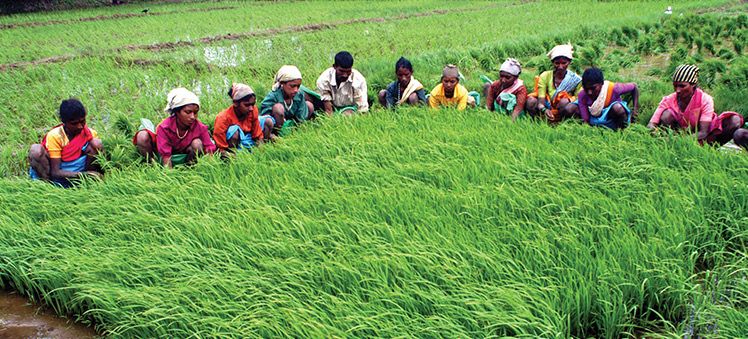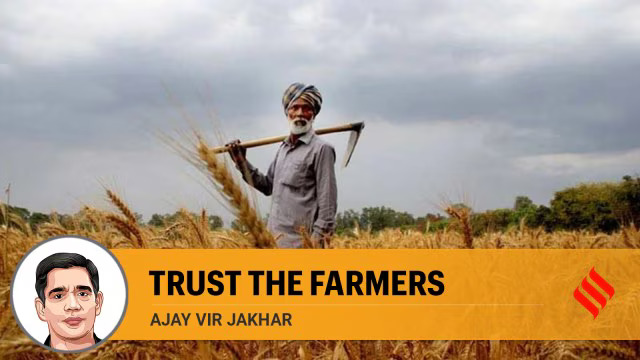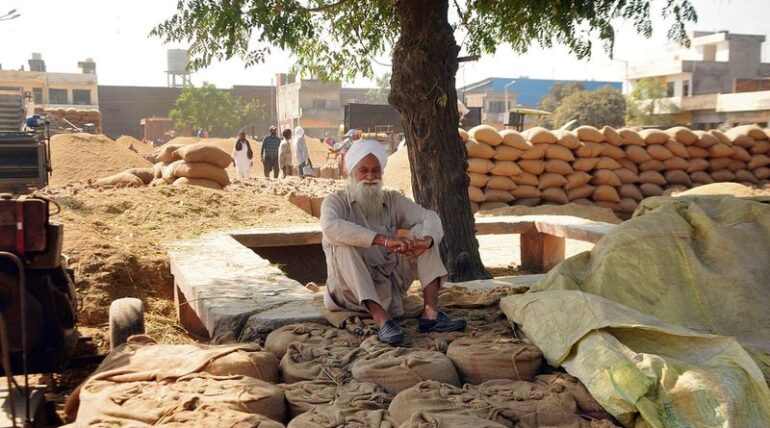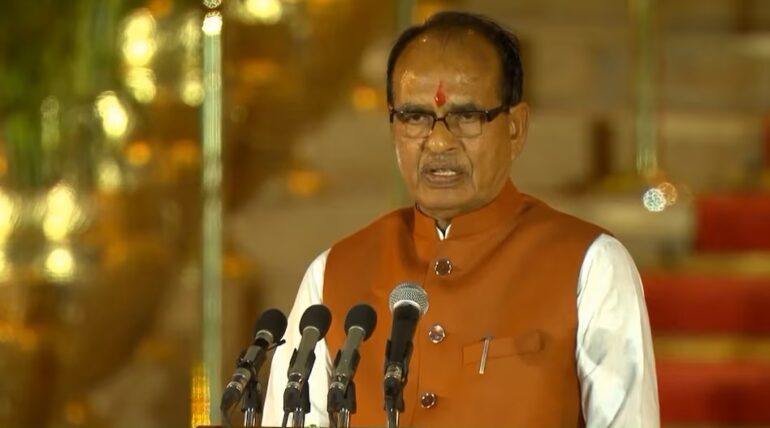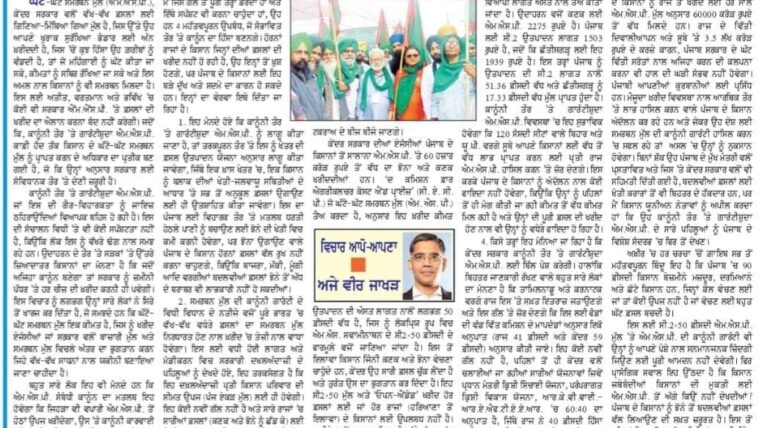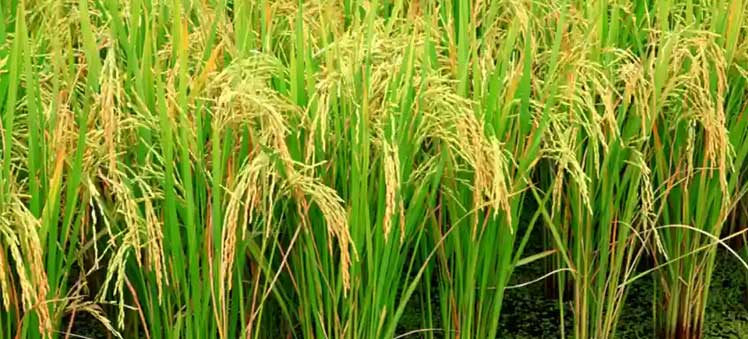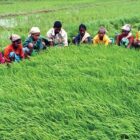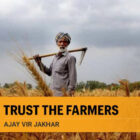Punjab is no longer viewed as the promised land with a palpable feeling of despondency continuing to consume the youth. In the past few years, especially since the agitation against the well-intentioned ill-conceived farm laws, rural Punjab feels short-changed while others feel that the state is being overly pampered. The gap between perceptions magnified due to the social media assault to ostracize those agitating against the farm laws. This makes solutions to the inseparably intertwined issues, of Punjab’s ecological sustainability and India’s food security, elusive.
The principal threat to Punjab is the cultivation of paddy which is depleting aquifers and is the leading cause of biodiversity loss. Climate change induced erratic weather, rising temperatures and receding glaciers is precipitating the existential threat. Man-days of work created on a paddy field is less than half of other crops and ferments a socio-economic nightmare. The writing has been on the wall for a long time, to prosper, Punjab needs more economic complexity. Experts constantly propagate minimum support price (MSP) for other crops will be incentive enough for farmers to diversify away from paddy cultivation. But, simple logic points to the returns on paddy far outweighing the returns on other crops along with paddy being less prone to weather-related production risk.
To analyse the different perceptions first, Punjab has been delivering about 30 per cent of India’s food reserves from 1.52 per cent of the India’s landmass. In the process, the groundwater levels have plunged. Within a decade, of the 153 blocks, 80 blocks are on track to becoming economically unviable for extraction of groundwater for agriculture production. Next, Punjab is still scarred by a decade of terrorism instigated from across the border and has been unable to recover financially and emotionally. Having historically, from even before Independence, provided a large contingent of soldiers to the armed forces, Punjab feels that it is not being rewarded enough for its sacrifices and hard work. Also, the seasonal rise in air pollution in Delhi increases the blame game between Punjab farmers and the urban middle class, which unfortunately has become the new ‘moral majority’. Farmers in Punjab feel they should be compensated for not burning the crop residue, while others insist ‘polluter pays’ principle.
Punjab farmers receive free power worth ₹ 9,000 crores paid by the state exchequer annually. The central government agencies annually procure paddy and wheat from Punjab farmers worth over ₹ 60,000 crores at MSP. This works to about 50 per cent more than the weighted average cost of production, popularly referred to as the MS Swaminathan’s C2+50 per cent formula. Additionally, the centre lifts all the wheat and paddy the farmer wants to sell and promptly pays for it. This C2+50 price and open-ended procurement are not available for any other crop or for farmers in other states (apart from Haryana). Consequentially, in comparison the average monthly income per agricultural household in Punjab is two and a half times higher than the Indian average.
Earlier the centre had two concerns around Punjab. The first, a restive rural Punjab population was a festering ground for terrorism from across the border. In recent years, however, Pakistan’s economy, polity and its army have become pale caricatures of their infamous past. The second, India needed Punjab’s grain for food security. Now, the Union government officials are brimming with hubris in India’s ability to feed itself into the distant future, with limited procurement from Punjab.
This can hardly be over-emphasised; considering the near financial bankruptcy of the state and the lack of political will, vision and capacity, the political leadership is averse to making difficult choices. Sadly, a solution that envisages the state even part funding the transition will not even get off the drawing board. The competitive populism of farmer union leaders has placed life in Punjab on the verge of a precipice. Cultivation of Paddy in Punjab is like an intoxicant that the centre injected for decades, and now addicted, it’s become difficult to wean away farmers from its cultivation. In such dire circumstances, the union government will have to foot the diversification bill. I propose the state seek an eight-year package that pivots a sustainable transition and is politically in the realm of doable. The foundational pre-requisites are:
First, the state will:
a) Stop the unmetered supply of power.
b) Limit free power supply to families with landholdings up to seven and half acres.
c) Limit free power to one tubewell connection per family.
d) Provide subsidised power only for those who use drip irrigation or other advanced interventions.
e) Hold elections to the market (mandi) committees.
f) Make judicious use of state resources; place a moratorium on advertisements, which I estimate are costing the state exchequer about ₹2 crores a day.
g) Repurpose savings generated from the above initiatives to
i) Create market infrastructure & marketplaces for fruit & vegetables
ii) Double expenditure for agricultural research and extension
iii) Improve human capacity through investments in education, health and such others.
Subsequently, the Union government will: a) Limit MSP procurement of paddy to produce of five acres per family. b) Procure alternative MSP crops to paddy at MSP, as per block level production plan prepared by the Punjab Agriculture University and the ICAR. c) Pay a 100 per cent premium to insure such crops replacing paddy. d) For families diversifying from paddy that are applicable for PM Kisan, give ₹12,000 per acre for five acres. e) Give incentives to drive private sector investments to create off-farm employment in Punjab. f) Reassess water availability in rivers and thereafter decide on water-sharing issues between states.
I am conscious of the fact that these recommendations neither go as far as required nor will meet the expectation of every stakeholder, but are in the long-term interest of the overwhelming majority and will result in positive outcomes. Ideas have a life of their own and the bottom-line is that this package to reverse the poly-crisis, cannot work piecemeal has to be initiated by the state. END


